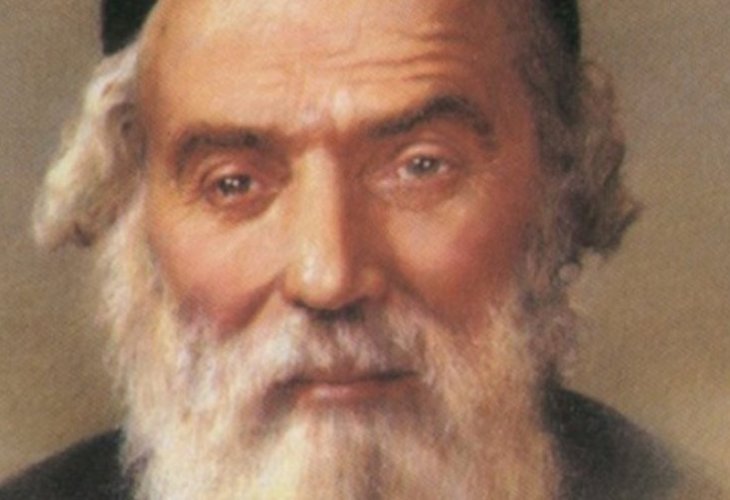Torah Personalities
Seven Glimpses of Greatness: Lessons from the Life of the Chafetz Chaim
Through the eyes of his grandson, Rabbi Hillel Zaks, we see the humility, holiness, and humanity of Rabbi Yisrael Meir Kagan of Radin

Few figures have shaped the moral and spiritual consciousness of the Jewish world like Rabbi Yisrael Meir Kagan of Radin, known universally as the Chafetz Chaim. Revered for his saintliness, humility, and unwavering dedication to Torah, his legacy continues to inspire generations. Through the personal memories of his grandson, the late Rabbi Hillel Zaks, we can gain intimate glimpses into the everyday greatness of this towering sage, his wisdom, simplicity, and the quiet strength that defined his life.
1. The Blessing of Not Being Rich
In an article published in Mussaf Shabbat Kodesh, Rabbi Hillel Zaks recalled:
“One Shabbat, the Chafetz Chaim was speaking about the dangers of worldly pleasures and material excess. In the midst of this discussion, he turned to his son-in-law, Rabbi Mendel Zaks, and said: ‘Reb Mendel, I bless you that you should never become wealthy.’”
A wealthy man sitting at the table grew visibly nervous, fearing he too would receive such a “blessing.” The Chafetz Chaim, ever perceptive, turned to him and said, “Don’t worry, this is a blessing I reserve for those I love most.”
Rabbi Hillel later added with a smile, “Baruch Hashem, the blessing was fulfilled, beautifully!” Then, with a wink, he added, “But for those considering a shidduch with our family, I should clarify, we don’t know how many generations this blessing applies to…”
2. Royal Cleanliness for a Servant of God
Though the Chafetz Chaim rejected the trappings of worldly honor, he always maintained a clean and dignified appearance. His clothes were spotless, and his hat was neatly placed on his head, because, as he taught, one who serves the King of kings must present himself like a royal prince.
Rabbi Hillel would caution, however, that such a perspective only belongs to someone who has already built within himself a deep sense of servitude to God. Only then can his service be like that of a beloved son before his Father.
3. Simplicity and Sacrifice for a Sukkah
Rabbi Yehuda Kravitz, a student of the Radin Yeshiva, once shared: the Chafetz Chaim lived in such extreme poverty that he didn't have panels for his sukkah. Each year, he would dismantle the door of his home and use it to construct the sukkah’s wall.
4. A Father’s Quiet Rebuke
Rabbi Chaim Mann, son-in-law of Rabbi Hillel Zaks, recounted a story told by the Chafetz Chaim’s daughter, Rebbetzin Faiga:
“One day, my mother and I were having a spirited disagreement and raised our voices slightly. My father overheard and called me aside. He said, ‘Faigele, I don’t know who’s right or wrong, but know this: however you speak to your mother, that’s how your children will one day speak to you.’”
5. “Don’t Give God Advice”
In another story, Rebbetzin Faiga told of a time when she prayed intensely for a personal request. When she finished, her father gently said: “Faigele, it’s not good to give the Almighty advice. We don’t need to instruct Him what to do for us. He knows better than we do what is truly good. When we pray, we should say, ‘Master of the world, do what You know is best.’ Of course, one must pray and ask for their needs, but without trying to direct God’s hand.”
6. Curtains and Humility
As a bride, Faiga traveled to Vilna with money her father had given her for wedding expenses. There, she considered buying curtains. Knowing her father’s views on material simplicity, she smuggled the package in through the back entrance, hid it in the attic, and only then entered the house through the front door as if returning from her trip.
Later, her father greeted her and said: “You know, Faigele, we’re simple people. Some prefer fancy living, like hanging curtains in their homes. But we’re not among them.”
She challenged him, pointing out that she had seen curtains in the home of Rabbi Chaim Ozer Grodzinski, the leading sage of Vilna. The Chafetz Chaim responded without hesitation: “Ah, Rabbi Chaim Ozer is the president of Israel. It’s appropriate for him to carry a bit of honor. But we’re just simple villagers.”
Rabbi Mordechai Mann added that, in truth, even Rabbi Chaim Ozer’s home was no more luxurious than the Chafetz Chaim’s modest cottage.
7. The Sound of Lashon Hara
Rabbi Chaim Mann concluded with one final story:
“My grandmother told me that whenever someone began to speak about others, and especially if it veered toward lashon hara (negative speech), knocking would suddenly be heard from the Chafetz Chaim’s room. Even if he was far away or couldn’t hear what was said, he would somehow know and immediately call out, ‘Lashon hara! Lashon hara!’”
Through these personal recollections, Rabbi Hillel Zaks offered us rare and vivid access to the character of his grandfather, the Chafetz Chaim: humble yet sharp, simple yet profound, and wholly devoted to the service of Heaven in every breath.

